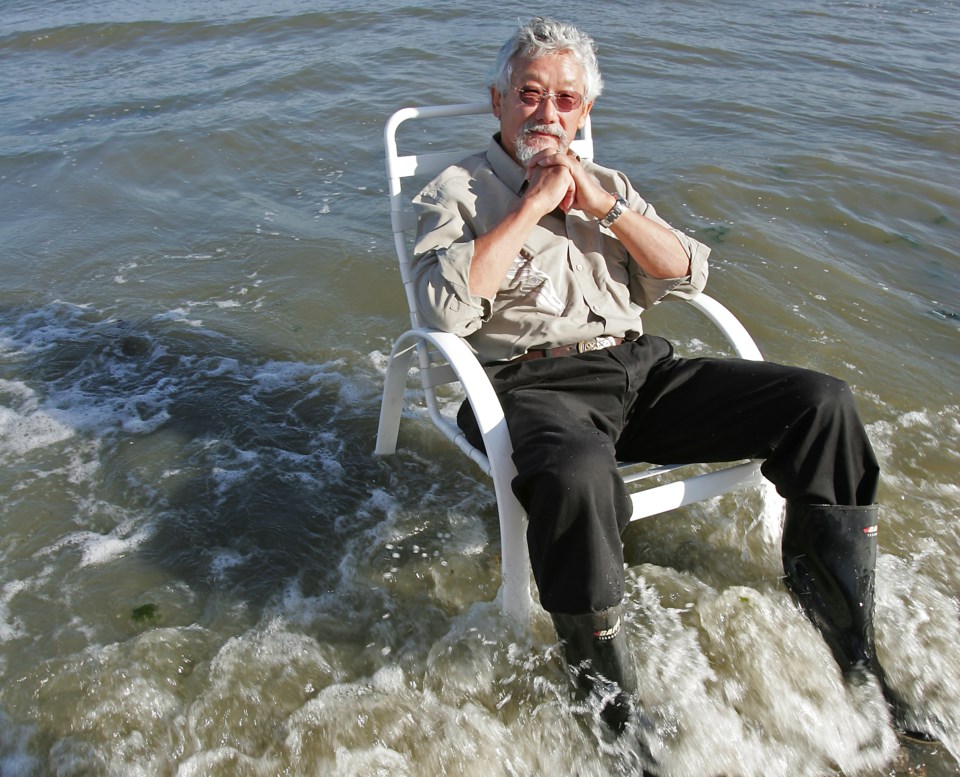June 8 marks World Oceans Day, but what if we celebrated oceans every day? Covering more thanÌý70 per cent of Earth’s surface, oceans, more than anything, define our small blue planet. We should celebrate their complex and vibrant ecosystems, life-sustaining services, calming effects and unimaginable diversity, much of which we have not yet even discovered.
Summer is an especially rich time for ocean life. As days grow longer here in the northern hemisphere, abundance builds from the microscopic level as photosynthesis triggers phytoplankton to bloom, providing food for zooplankton such as krill. Krill then feed small fish like herring and sand lance, which in turn feed larger fish, dolphins and whales. This marine food web relies on a scale of unfathomable interconnectedness – yet it’s easily disrupted.
Climate change, overfishing, pollution, industrial activity, shipping and events like ElÌýNiño are putting oceans under stress like never before. Sea levels are rising,Ìýfish migrating,Ìýoceans acidifying, coral reefs bleaching andÌýphytoplanktonÌýdisappearing, and populations of iconic marine mammalsÌýlikeÌýkiller whalesÌýare plummeting.Ìý
The news for oceans hasn’t been good lately, and that worries Canadians. It’s not just coastal communities that are defined and affected by oceans. Canada has the longest coastline in the world, and people throughout Canada want the seas, and all the marine life they support, to be healthy.
Fortunately, solutions toÌýmany ocean woes are within our grasp, although governments have been frustratingly slow to act over the past decade. Canada could protect marine areas, restore protectiveÌýlaws,ÌýconserveÌýwild salmon andÌýcontrolÌýopen net-pen fishÌýfarms.Ìý
Our country’s commitmentÌýto by 2020 is a good start, but if we followed countries like Australia and the US, we’d aim higher. Canada could act to transform its reputation from laggard to leader on marine protection, planÌýfor ocean management with an understanding of how ecosystems work andÌýincorporate traditional Indigenous knowledgeÌýto giveÌýwildlife a chance to thrive.
PacificÌýsalmon, crucial to West Coast ecosystems,Ìýare especially in need of protection, but their numbers continue to decline.ÌýFew natural events are as dramatic and moving as millions of salmon returning from the oceans to spawn in streams, rivers and lakes.ÌýDriven by the imperative to reach spawning beds before their genetically programmed deaths, salmon fight past predators, hooks, nets and pollution, retaining the power to leap river barriers shortly before their lives end.ÌýBears, eagles and other wildlife feed on the salmon, leaving their nitrogen-rich wastes to fertilize the magnificent coastal rainforests.
ForÌýalmost 40 years,ÌýCanadian laws protected fish such as salmon and theÌýwater bodies where they live and spawn.ÌýThe Fisheries Act was one legal tool to protect lakes and rivers, which offer benefits such as clean drinking water to nearby communities. But the federal government removed habitat protections from the act in 2012. Fish that aren’t part of a defined, often commercial, fisheryÌýwill remain vulnerable untilÌýprotection isÌýreinstated.
We still have much to learn about wild salmon, but we can take some practical steps to support them.ÌýA lot of time and money, about $37 million, was spentÌýon of Pacific salmon management ever undertaken.ÌýIt’s been four years since BC Supreme Court Justice Bruce CohenÌýcompleted his Inquiry into the Decline of Sockeye Salmon in the Fraser River, yet few of his recommendations have been implemented.ÌýFish biologistsÌýsay thatÌýCanada’s Wild Salmon Policy, adopted in 2005, also offers , but it isn’t being followed either.
Salmon face other threats. Concerns over disease spread from salmon farms to wild salmon were heightened recently with the discovery of a . The virus connected to this disease plagues Norway’s farmed salmon and is now common in penned Atlantic salmon and wild fish near BC fish farms.
Salmon are often indicators of the overall health of the ecosystems in which they live. When marine ecosystems are healthy, they provide food, jobs, recreation and culture. They are foundational life forces forÌýwhales, bears, eagles,Ìýforests and humans. We shouldÌýcelebrate theirÌýlife-giving capacityÌýbyÌý – not just on World Oceans Day, but every day!
Ìý
• David Suzuki is a scientist, broadcaster, author and co-founder of the David Suzuki Foundation.ÌýWritten with contributions from David Suzuki Foundation senior communications specialist Theresa Beer. Learn more atÌý.



